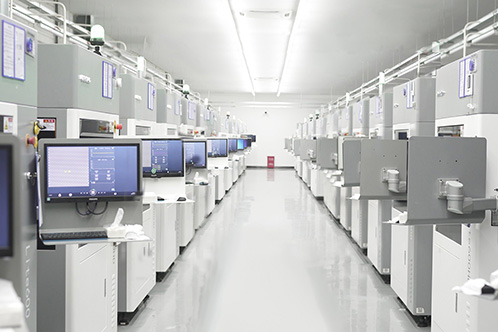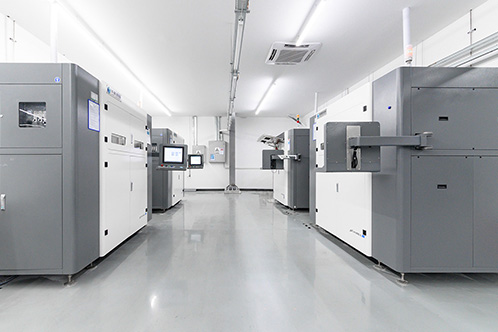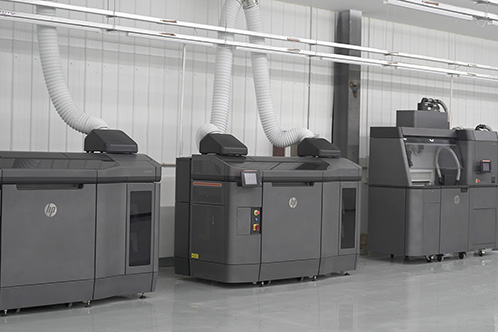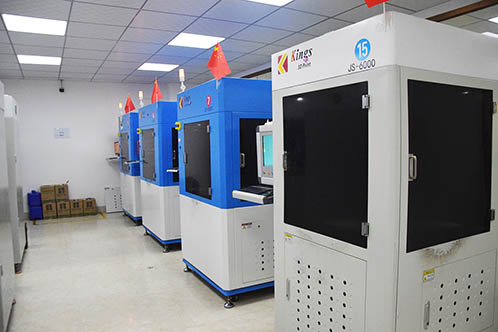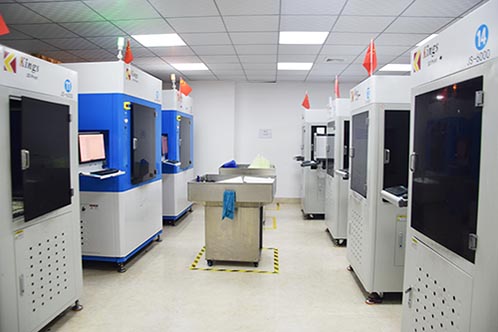Hochwertiger MJF 3D-Druck-Service
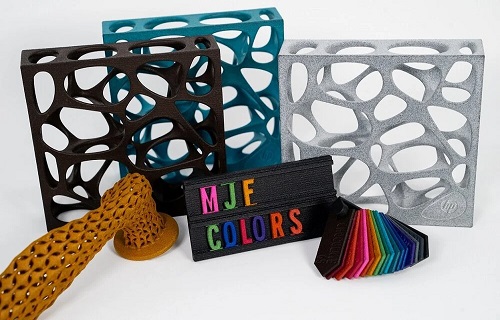
Entfesseln Sie Ihre Kreativität mit dem MJF 3D-Druckservice für hochwertige Prototypen
Inspire your creativity and experience our advanced MJF (Multi Jet Fusion) 3D printing service. The unparalleled quality and precision brought by this technology will transform your design ideas into practical, high-performance prototypes. MJF 3D printing technology can produce parts with rich details, smooth surfaces, and precise dimensions. Whether you are developing new products, testing design concepts, or iterating on existing designs, our MJF 3D printing services provide you with the ideal solution to turn your vision into reality. Utilizing the multifunctionality of MJF technology, exploring complex geometric shapes, intricate features, and functional components - all while maintaining uncompromising quality. Our end-to-end service from design support to final part delivery ensures a smooth experience, allowing you to unleash your creativity and accelerate the product development process.
How MJF 3D Print Works
Unleashing the Power of HP Multi Jet Fusion 3D Printing
Multi Jet Fusion (MJF), also known as HP 3D printing, is an advanced industrial additive manufacturing process that enables rapid production of high-quality nylon prototypes and end use components. This cutting-edge technology can deliver functional components in just one day, completely changing the speed of product development and manufacturing.
The MJF process utilizes a series of inkjet print heads to selectively apply fusion agents and detail treatment agents on a nylon powder bed. Then, these agents are fused through heating elements to transform the powder into a solid layer. This process is repeated layer by layer until a complete component is formed, thereby achieving efficient and precise additive manufacturing methods.
The key advantage of MJF lies in its ability to create components with complex geometries and excellent mechanical performance, which can be comparable to injection molded parts. By constructing layers with a thickness of only 80 microns, MJF can produce functional prototypes and terminal components with unparalleled details and surface smoothness.
This technological advantage makes MJF an ideal choice for rapid prototyping, design validation, and cross industry terminal component manufacturing. Whether you want to accelerate product development cycles, explore complex design concepts, or scale up production, the versatility and performance of HP Multi Jet Fusion 3D printing can help you unlock new levels of innovation and efficiency.
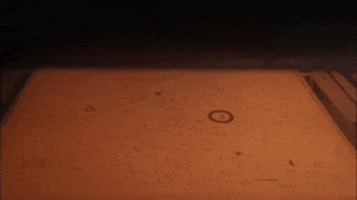
Advantage of MJF 3D Printing
-Speed - more than 10x faster than traditional systems;
-Ability to rival IM cost in some cases;
-Excellent dimensional accuracy and detail;
-Robust mechanical properties;
-Great for Prototype & Production;
Selecting the Optimal Nylon Material for HP Multi Jet Fusion 3D Printing
Choosing the nylon material that is suitable for your HP Multi Jet Fusion (MJF) 3D printing project is the key to ensuring the success of the project. MJF is a powder based additive manufacturing technology that offers multiple nylon options, each with its unique characteristics and applicability. To help you make informed decisions, let's explore the key factors to consider:
Identify Project Requirements
Begin by clearly defining the specific requirements and properties needed for your 3D printed part. This includes evaluating factors such as mechanical strength, heat resistance, chemical resistance, flexibility, surface finish, and overall functionality.
Understand Nylon Variations
Nylon materials come in various grades and formulations, each with distinct characteristics. Some popular nylon types used in 3D printing include PA 12 (Nylon 12) and PA 11 (Nylon 11). PA 12 is renowned for its excellent mechanical properties and is widely adopted, while PA 11 offers increased flexibility and a lower environmental impact, albeit with slightly reduced mechanical performance.
Evaluate Material Data Sheets
Carefully review the data sheets provided by the 3D printing material supplier or manufacturer. These sheets contain valuable information about the material's properties, such as tensile strength, elongation at break, hardness, and thermal characteristics. Compare these specifications against your project requirements to ensure alignment.
Consider Post-Processing Needs
Determine if your project will require additional post-processing steps, such as dyeing, surface smoothing, or chemical treatments. Certain nylon materials may be better suited for specific post-processing techniques.
Consult with Experts
Discuss your project's requirements with us. Our team can provide insights based on their extensive experience with different nylon materials and guide you towards the most suitable option for your needs.
Conduct Sample Testing
If possible, obtain sample parts printed with various nylon materials to evaluate their properties and performance in person. This hands-on approach can give you a better understanding of how each material behaves and help you make an informed decision.
Factor in Cost Considerations
Nylon materials can vary in price, so consider your project's budget and how it aligns with the material costs.
Assess Environmental Impact
If sustainability is a key concern, take into account the environmental impact of the nylon material. Some formulations may be more eco-friendly than others.
By carefully considering these factors and conducting thorough research, you can select the optimal nylon material for your HP Multi Jet Fusion 3D printing project, ensuring it meets your functional requirements, budget, and sustainability goals.
MJF Printed Parts Application
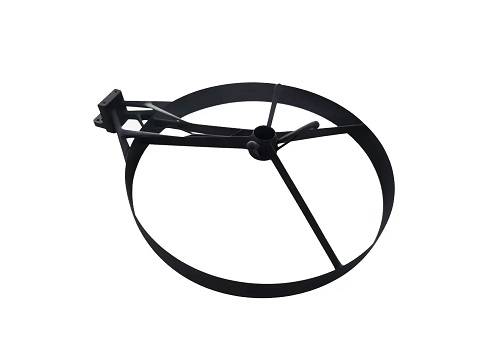
For Aerospaces
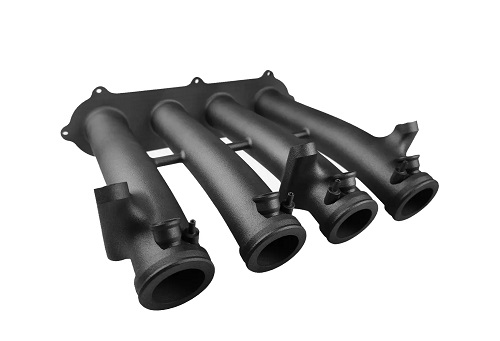
For Automotive
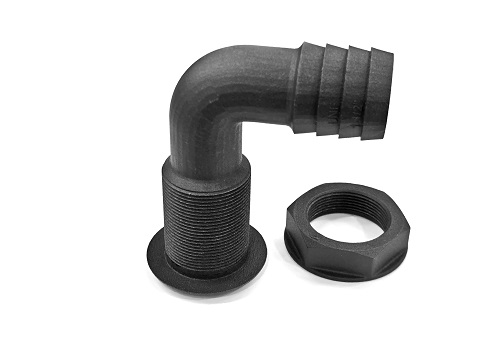
For End-Used Parts
MJF 3D printing equipment
As a professional 3D printing company, we have 50 SLA resin 3D printers, as well as 6 SLS nylon 3D printers and metal 3D printers. We have a variety of 3D printing materials to choose from, as well as various post-processing processes and complete outsourcing processing capabilities. We provide services such as 3D printing, copying, and coloring, and have established a dedicated team for model production business, possessing excellent display analysis and design capabilities. Possess strict quality management system certification. We have rich experience in industries such as automobiles, home appliances, office equipment, building models, medical dentistry, jewelry, sculpture, ceramics, etc.
